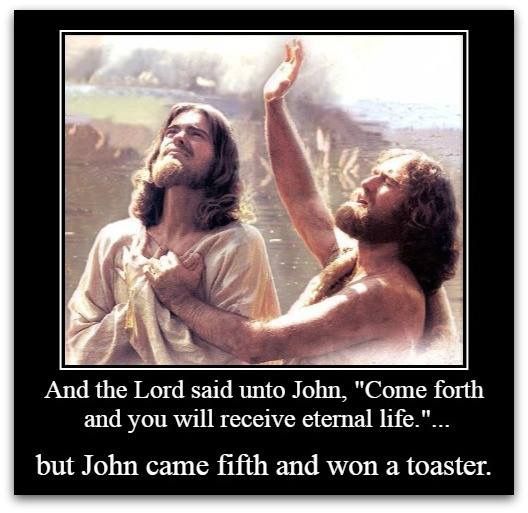The Silence of God: How the Holocaust Challenges Faith More Than It Confirms Evil
In the horror of the Holocaust, where was God?

Introduction: A Catastrophe Beyond Theology
The Holocaust is not merely the greatest human atrocity of the modern era. It is the most devastating theological challenge to ever confront belief in a benevolent, omnipotent deity.
To witness the systematic extermination of an entire people—the Jewish people, chosen by God Himself, according to scripture—and to hear no voice, no thunder, no answer from above, is not just a wound to the soul. It is an existential crisis for the very notion of God.
For many believers, the Holocaust is an example of the “doctrine of evil”—the theological attempt to explain human suffering through the lens of sin, free will, or divine mystery. But that framework no longer holds under the weight of six million dead, burned, gassed, buried, and forgotten by the heavens.
This blog is not written in hatred or rage. It is written in sober reflection, a long-overdue confrontation between faith and silence, doctrine and data, belief and brutal history. For in Auschwitz, Treblinka, Dachau, and Sobibor, one question echoed louder than any other:
Where was God?
Section I: What the Holocaust Revealed About God’s Silence
The Reality
Let us begin with the simplest fact: There was no divine help. Not for children. Not for mothers. Not for rabbis. Not for the devout, the learned, the innocent, or the desperate.
There was no burning bush, no pillar of fire, no Red Sea parting to rescue this generation of Jews. There was no divine wrath against Hitler. No angel of death passing through the halls of the Gestapo. No manna from heaven dropped into starving ghettos.
The faithful prayed. They recited Psalms. They wept and worshipped and waited.
And God did not answer.
From a purely observational standpoint, there is no difference between a God who chooses not to act and a God who does not exist. In both cases, the children die.
The Question Behind the Silence
Some will ask: What did you expect God to do? Intervene? Send angels? Perform miracles?
The real question is: If not then, when? If not for them, for whom?
If the Holocaust—the industrial slaughter of six million Jews, many of them children—is not sufficient cause for divine action, then what is?
That silence speaks volumes. And what it says is terrifying: either God does not care, or God does not exist.
Section II: The Failure of Theodicy
Free Will Is Not a Free Pass
Traditional Christian and Jewish theology attempts to resolve the problem of evil through various theodicies. Chief among them is the Free Will Defense: that God allows evil because He granted humans the gift of free will, and to revoke that gift—even to prevent atrocity—would be to undermine moral agency.
But this argument collapses in the face of genocide. Free will is a justification for permitting evil—not for allowing evil to triumph completely, unopposed.
If a man chooses to rape and murder a child, the free will defense might explain why the act was allowed to occur—but it cannot explain why God stood by and let it succeed, let it go unpunished, let it multiply a millionfold over a decade.
If God is merely watching evil unfold so that free will remains untouched, then His moral framework is indistinguishable from apathy.
Suffering Builds Character?
Another favorite explanation is that suffering is redemptive. That it builds strength, fosters humility, or deepens faith. But there is nothing redemptive about babies being thrown into furnaces. There is no moral character built in starvation. No humility gained in rape.
This is not spiritual discipline. It is annihilation. And if the purpose of suffering is refinement, the Holocaust is a furnace that left no survivors. Only ash.
Section III: Elie Wiesel, Job, and the God Who Wasn’t There
“Where Is God?” – Night on the Gallows
Elie Wiesel’s Night offers one of the most chilling theological observations ever written. When he witnesses a child slowly hanged by the Nazis, someone behind him cries out, “Where is God now?” Wiesel answers silently: “He is hanging here on this gallows.”
That image became a kind of existential crucifix—symbolizing not Christ’s sacrifice, but the death of certainty. The loss of belief not in God’s goodness, but in His presence.
Wiesel’s statement does not deny God outright. It suggests something far worse: that if God is present in suffering, He is either powerless or complicit.
The Book of Job Revisited
The Book of Job is often cited as the template for righteous suffering. Job loses his wealth, his children, and his health, yet maintains faith until God restores him.
But Job is a story. The Holocaust is history.
No restoration came for the Jews. No whirlwind voice. No double blessing. Only silence and ash.
To compare the Holocaust to Job is to suggest that the suffering of millions was a test of endurance. That God had a cosmic bet with Satan over the moral resolve of His people. That the gassing of children was a wager in divine bookkeeping.
Such theology borders on the obscene.
Section IV: Atheism as a Moral Response
Why God’s Nonexistence Explains More Than His Absence
If God does not exist, the Holocaust becomes horrifyingly explicable. Not justified—but understandable.
There was no intervention because there was no one to intervene. There were no miracles because the universe is not designed to rescue us. We are alone, and therefore responsible for one another.
Oddly, this view restores a kind of moral clarity. In a world without God, the moral burden is ours—fully, inescapably, and entirely.
Auschwitz is no longer a question for theologians. It is a demand for accountability—for humans to create the justice that heaven withholds.
Religion Without Responsibility
But if God does exist and chose not to act—then we must consider a more chilling possibility: that our prayers, our suffering, and our pleas do not matter.
This is not atheism. It is worse.
It is faith in a deity who observes genocide and does nothing—not out of constraint, but out of divine prerogative. Such a being is not worthy of worship. At best, He is irrelevant. At worst, monstrous.
Section V: Theological Rebuttals and Why They Fail
“God Works in Mysterious Ways”
The ultimate dodge. The final fallback of those who cannot explain suffering but refuse to doubt the existence of the one who permits it.
But mystery is not a virtue. In the face of genocide, it is cowardice.
A moral system that relies on unknowable wisdom to explain the murder of six million children is not a system of hope. It is a cult of resignation.
“It Was a Punishment for Sin”
This is the most revolting defense. Some have suggested that the Holocaust was divine punishment for assimilation, secularism, or Zionism.
This argument is not only morally bankrupt—it is historically false. Many of the most devout, Torah-observant Jews were among the first to die. If this was punishment, then God’s justice is random at best and sadistic at worst.
Section VI: Secular Morality After the Holocaust
What the Holocaust Demands of Us
The Holocaust must forever change how we speak of God. It cannot be a footnote in theology, nor a challenge to be answered with platitudes. It is a refutation of the idea that morality flows from divinity.
In its place, we must elevate human responsibility. Justice must become our domain. Compassion must be our commandment. Resistance must be our gospel.
We are the gods now—not in arrogance, but in necessity.
If no help is coming from the heavens, then help must come from earth.
A New Covenant
The post-Holocaust world requires a new covenant—not between God and man, but between man and man.
A covenant of mutual protection, moral vigilance, and historical honesty.
Never again cannot be a prayer. It must be a plan.
Conclusion: The God That Did Not Come
The Holocaust is not just a wound in Jewish history—it is a wound in theology. It is a contradiction that no doctrine can absorb, no sermon can soothe.
If God exists and did nothing, He is unworthy of belief. If He does not exist, then the only hands capable of saving us are our own.
In either case, the message is clear: help did not come from heaven. And the next time the fires rise, we must be the ones who stand between the innocent and the flames.
References
- Wiesel, Elie. Night. Hill & Wang, 1960.
- Arendt, Hannah. Eichmann in Jerusalem: A Report on the Banality of Evil. Penguin, 1963.
- Dawkins, Richard. The God Delusion. Mariner Books, 2006.
- Kushner, Harold S. When Bad Things Happen to Good People. Schocken Books, 1981.
- Rubenstein, Richard L. After Auschwitz: Radical Theology and Contemporary Judaism. Bobbs-Merrill, 1966.
Disclaimer:
This blog explores theological, philosophical, and moral themes in response to historical events. It is not intended to mock or belittle any faith tradition but to critically examine enduring questions about divine action, suffering, and the ethics of belief. Reader discretion and open-minded reflection are encouraged.











